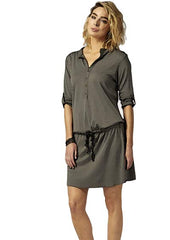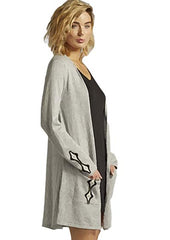Men's Organic Underwear

comfortable, healthy clothes from Men

ETHICAL ORGANIC CLOTHES
There is a lot of information out there but it is very hard to determine - what are the "best" clothes? Which are the most ethical? Most sustainable? I am passionate about organic living because adding toxins to my life and my world, seems senseless. I have sensitive skin and react negatively to chemicals in clothing and synthetics. I hope the information below might be of help to you but the choices of priorities are yours.
TOXIC CLOTHES - I despise plastic. Wearing polyester clothing is literally like wearing a plastic bag. Outside the fact that polyester is made of crude oil and tremendously damaging to earth, it is bad for our health. You sweat in polyester with no ventilation, so all the sweat and eliminated harmful substances get reabsorbed into your skin, promoting bacteria growth. So it stinks. Literally.
But that’s not all. Polyester is created by breaking up its source – oil by a reaction with heavy duty chemicals, many of them carcinogens and poisonous like ethylene glycol. If you ever get hot, itchy and uncomfortable when putting a polyester item on, this could be a contributing reason.
 NATURAL TEXTILES - Linen, hemp, ramie (a form of nettles) - breathe. Well, not literally but you do! These textiles were the most revered in our history and used in ancient Egypt, China, Greece. The clothing made of natural fibers have an imperfect texture, which gives the colors unique shading. I bet that if Atlantis really existed, linen fashion was the rave there! Our bodies wrapped comfortably in natural textiles for thousands of years worked out symbiosis that will last forever. Even if wrinkled, linen feels and looks expensive, classy and timeless. Even if linen crumples, we can love it because frankly, we crumple too. So, we match.
NATURAL TEXTILES - Linen, hemp, ramie (a form of nettles) - breathe. Well, not literally but you do! These textiles were the most revered in our history and used in ancient Egypt, China, Greece. The clothing made of natural fibers have an imperfect texture, which gives the colors unique shading. I bet that if Atlantis really existed, linen fashion was the rave there! Our bodies wrapped comfortably in natural textiles for thousands of years worked out symbiosis that will last forever. Even if wrinkled, linen feels and looks expensive, classy and timeless. Even if linen crumples, we can love it because frankly, we crumple too. So, we match.
SUSTAINABLE CLOTHES – We don't drill crude oil, the prime source of polyester, forever with impunity. It's not a sustainable solution. But we can grow plants sustainably – such as flax (source of linen), hemp, organic cotton and more. We can compost healthy natural clothing when worn out. The earth does not have to suffer because of us.
Polyester, like any plastic, does not compost. It disintegrates in tiny particles, eventually making its way to our rivers, oceans and water we drink. To our fish, which chokes on it and thru that fish back to us. It impacts young fish of all species. A2015 study estimated that about 8 million tons of plastic enter our oceans annually (Science Feb 13, 2015).
ECO-FRIENDLY ORGANIC CLOTHES – Even though natural fibers are the best choice, the responsibility does not end there. Textiles industry is the second dirtiest industry after oil. Farming conventional (not organic) cotton uses enormous amounts of dangerous pesticides, as much as 1/3 lb. used per one tee shirt. To supposedly “fix” that, much of grown cotton planted now is GMO, Genetically Modified Organism which cannot be re-seeded and is sold by greedy corporate sharks. Cotton uses tremendous amounts of water for processing so the manufacturing methods are of outmost importance.
Global Organic Textile Standards, G.O.T.S., is one of the most respected standards. They ensure that the fiber is grown in organic, non-GMO manner and the industry produces garments to with the lowest possible impact on earth, as well as people. In our store, you can find only textiles that are either certified organic or are grown in organic manner.

HEALTH ISSUES - Autoimmune shortcomings and sensitivities are very real for me, personally. Ten years ago, when I started Natural Clothing Company, I had no idea how much people suffer because of conventional clothing. Now, each day I receive phone calls with questions and searches for safe clothing. It is very hard to find exactly what you are sensitive to - in food and also in clothing. Many textiles are made using numerous additives and toxic finishes. These help the fibers bind together better, imitating the appearance of a higher quality product. The impression is temporary, however, as after few washes the garment falls apart. In a meantime, the chemicals are absorbed by your skin, the body’s largest organ, and may create havoc for the immune system. Many industrial dyes create an "alert" response in some people.
Studies, like the one prepared for Greenpeace, document that many top world and US fashion manufacturers are producing toxic clothes, harmful no-wrinkle finishes and flame retardants (read formaldehyde).
You don’t hear enough about toxic clothes but it’s worth understanding. People deserve clean food, water and clothes that nourish and serve, not cause harm.
Organic standards is the best what we can use for our health-being. It simply means “not poisoned”. Our store, if we carry cotton items, they are only made with organic cotton and low impact dyes, the safest method of dyeing. Some are even made with clay dyes. It is our hope and a belief that all products in the world should be safe to use and that we all, need to demand ethical choices. It needs to become a standard everywhere.
ETHICAL CLOTHES - WHO MADE MY CLOTHES?
 The textile industry employs millions of people around the globe. The majority gets paid pennies for their work while slaving in unsafe conditions. We all like a good bargain but knowing that purchases did not take advantage of another human is a must. If we pay few dollars for a garment, the worker got only pennies. That is slavery, not work. “Who Made My Clothes?” is the question to be asked. Products that are Fair Trade, Fair Labor or made in countries with strong labor laws guarantee workers’ rights. Simply put, in order to pay ethical wages, we as consumers must be willing to pay an honest price.
The textile industry employs millions of people around the globe. The majority gets paid pennies for their work while slaving in unsafe conditions. We all like a good bargain but knowing that purchases did not take advantage of another human is a must. If we pay few dollars for a garment, the worker got only pennies. That is slavery, not work. “Who Made My Clothes?” is the question to be asked. Products that are Fair Trade, Fair Labor or made in countries with strong labor laws guarantee workers’ rights. Simply put, in order to pay ethical wages, we as consumers must be willing to pay an honest price.

Living healthy, living fairly in the 21st century is a challenge for all of us. I love nature and grow my food. I wear organic clothes and support community but I don’t profess to have all the answers for solving the upside-down system.
I don’t have easy solutions to stop the toxic load that our civilization imposes on our air, waters and soils. But I care and try to do more good than harm to our bodies, to others and to our planet. At Natural Clothing Company, we develop relationships with manufacturers who make their products honestly and with care. Many of us are members of Green America, the oldest network of green businesses. We give preference to certified organic fibers, Fair-Trade practices, to natural vs synthetic.
There are a lot of us – people of good will, who ask questions, who observe and try to do the right things. You are one of them - if you are still reading this, you care. And we can repeat the message of needing, wanting and demanding a clean life and a safe environment for ourselves and fellow human beings.
As consumers, we dictate the textile trends. Current estimates say that for 2025, 98% of all textiles will be synthetics. Let’s clearly understand if that's what we want and love. As long as we keep refining who we are and what we value, we will be fine. Every action, every aspect of our being, even clothes, pave the path. If your soul calls for a connection with nature, with clean air and water, with a healthy body – then give this message a voice now. Together, we do make a difference!